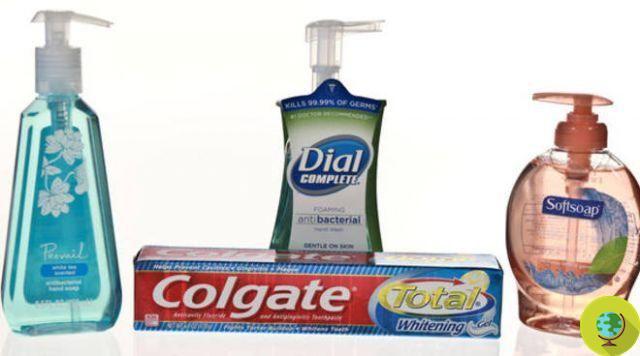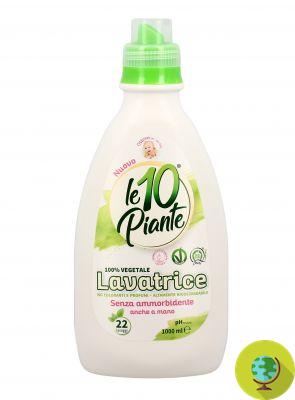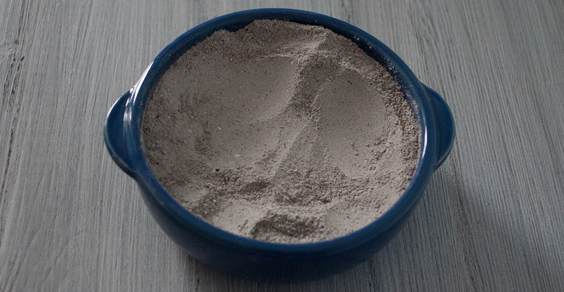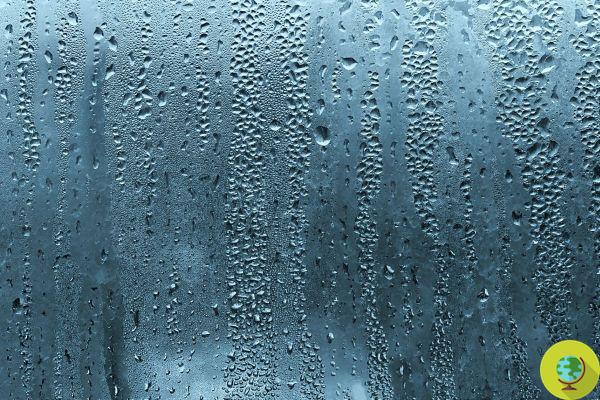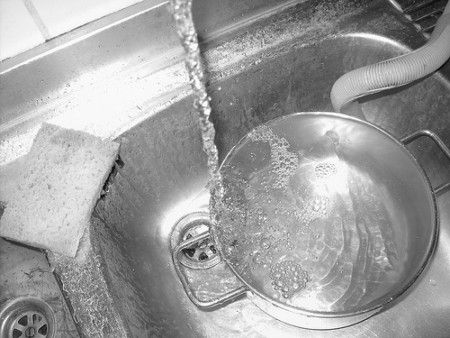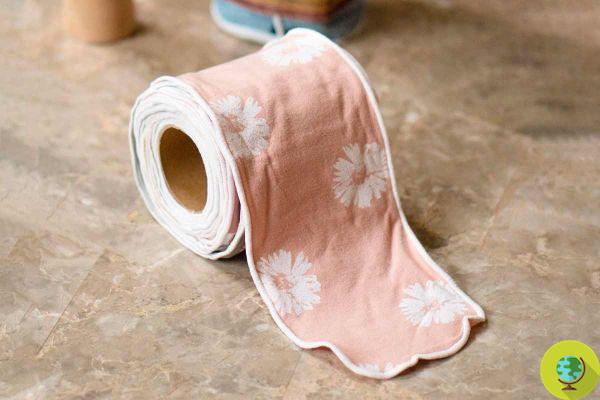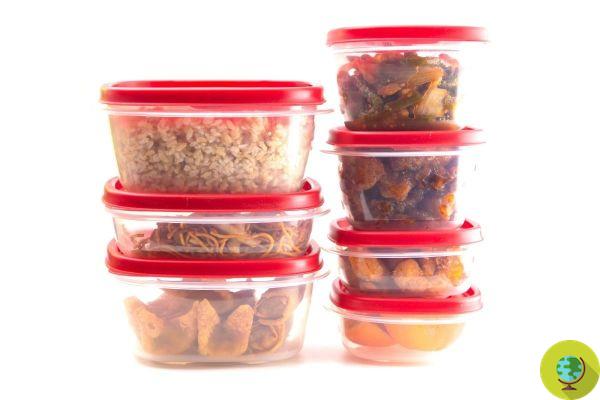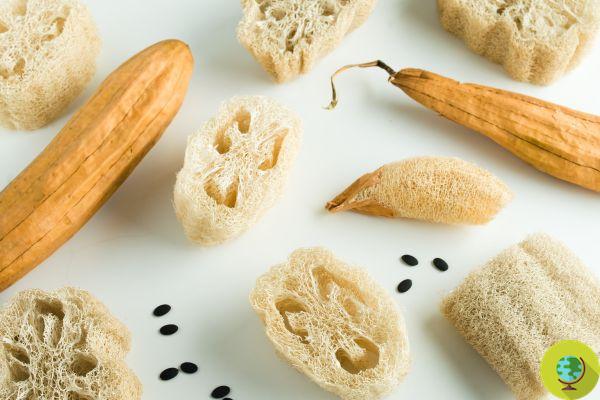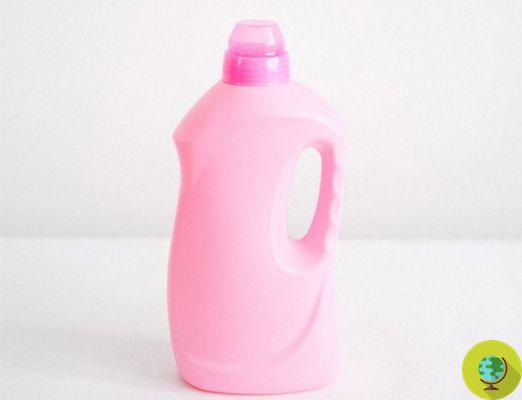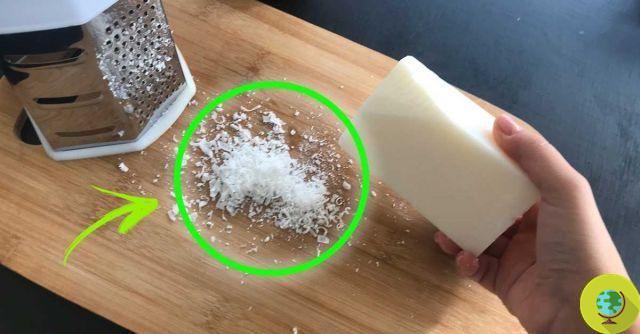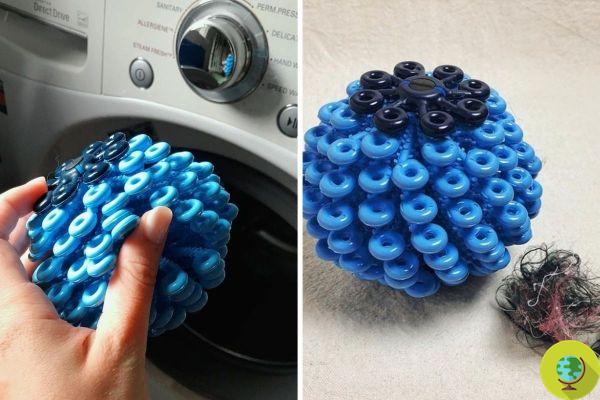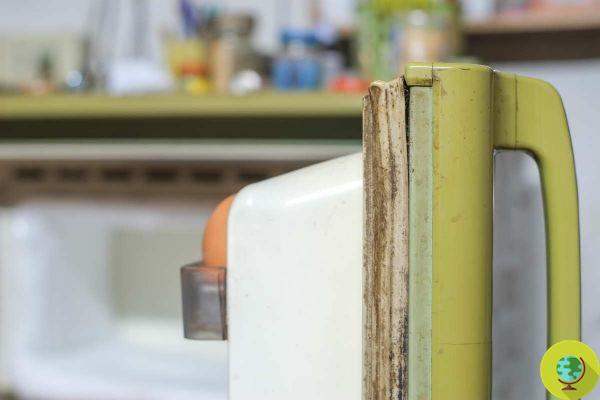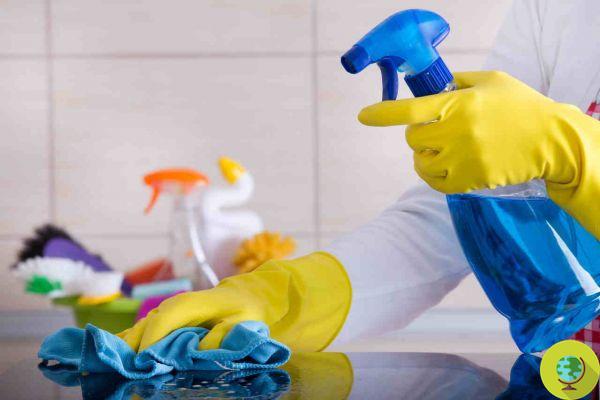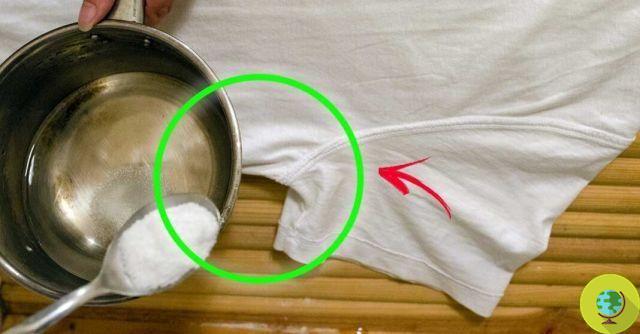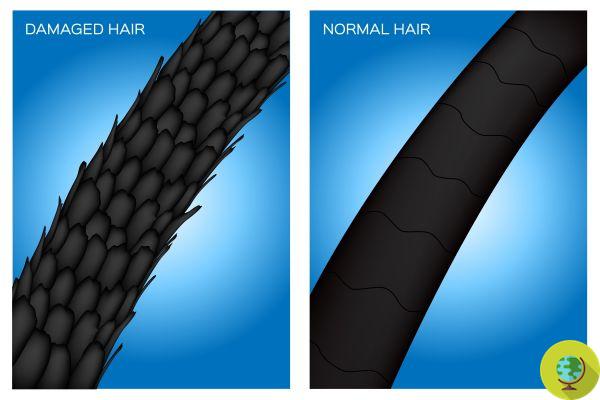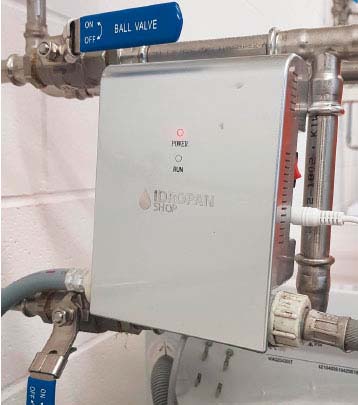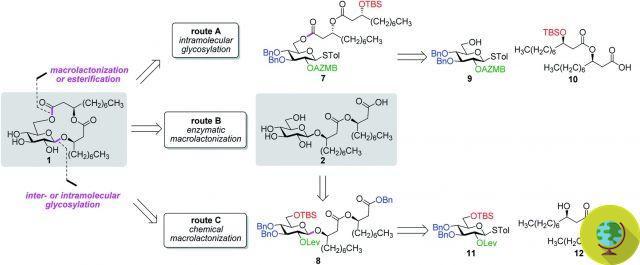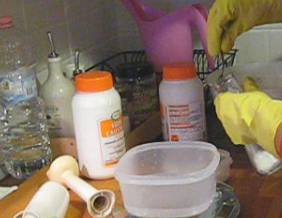Self-producing the detergents to be used for the laundry means choosing not to use polluting and potentially irritating or allergenic detergents for the most delicate skins. It also means reducing the amount of waste produced and recycling old detergent bottles practically indefinitely, to be able to use them as containers for your new completely homemade products.
He is about to end up run over, his mother saves him
Self-produce detergents to be used for the laundry it means choosing not to use polluting and potentially irritating or allergenic detergents for the most delicate skin. It also means reduce the amount of waste products and recycle the old bottles of detergent practically indefinitely, to be able to use them as containers for your new completely homemade products.
I more natural household detergentsi must be prepared using as a base of vegetable soap in flakes, to prepare yourself or to buy by carefully checking the ingredients.
In case of spots that appear particularly stubborn, it is advisable to pre-treat using a bar of soap and leave to act for a few hours before hand washing or washing in the washing machine.
By following our recipes you will no longer have to buy either hand or machine laundry detergents, or softener. Among the essential ingredients you will need baking soda, citric acid, vegetable soap, essential oil, laundry soda.
In case dparticularly dirty garments, it is advisable to add a spoonful of soda percarbonateor, a substance with whitening, stain remover and disinfectant power considered much less harmful and polluting than common bleaches.
Index
Liquid soda detergent
- 7 liters of water
- 400 grams of laundry soda
- 400 grams of grated vegetable soap
Use a large pot to bring the water to a boil, You can possibly halve the doses. Melt the flake soap in the water. Turn off the heat and add the laundry soda (not to be confused with caustic soda!). Keep stirring until your liquid detergent is well blended. Let it cool and transfer everything to a container for waste liquid detergent, or divide it into bottles. Use a measuring cup, calculating the quantity by referring to the cap of an old detergent, for each fully loaded washing machine. Halve the amount for light washes.
Liquid detergent with lavender and bicarbonate
- 5 liters of water
- 200 grams of vegetable soap in flakes
- 100 grams of baking soda
- 25 drops of lavender essential oil
Bring the water to a boil in a large pot. Pour the vegetable soap into flakes by hand and mix. Let it rest until the liquid has cooled and the soap flakes have completely dissolved. Then add the baking soda and mix well. Before moving on to transferring the detergent to the chosen bottle, add it with the essential oil of lavender and mix with a wooden spoon. It is a perfect detergent for towels, sheets and cotton linens. The laundry will be very fragrant. In case of stubborn stains, pre-treat with Marseille soap vegetable.
Perfumed flake detergent
- 500 grams of vegetable soap
- 200 grams of baking soda
- 15 drops of eucalyptus essential oil
- 10 drops of geranium essential oil
Equip yourself with a grater and patience and start reducing yours into flakes vegetable soap. When you have finished this operation, you can transfer everything into a bowl, in which you will add the baking soda, mixing carefully so that the mixture is uniform. Add your detergent with the essential oils to perfume it and to make it more disinfectant. Divide it into glass jars to keep tightly closed.
Hand laundry detergent
- 5 liters of water
- 50 grams of vegetable soap
Make sure you get the real Marseille soap completely vegetable, or try making it yourself with just three ingredients.
Bring the water to a boil and gradually pour the soap flakes into it, stirring until dissolved. When the detergent has cooled down, transfer it to a bottle. You can use it for hand washing comfortably without gloves. Once cold, you can add 15-20 drops of essential oils to the detergent to obtain a fragrant preparation.
Softener with citric acid
- 500 milliliters of demineralized water
- 50 grams of citric acid
With the help of a funnel, pour the demineralized water into a half-liter bottle and add immediately after the'citric acid. Close the bottle tightly with its cap and shake until the citric acid has dissolved. Also remember to shake each time before use. Citric acid is an excellent solution for making a home softener capable of counteracting calcium residues that can harden your laundry. Use 50 milliliters for each full wash, pouring it into the washing machine compartment intended for fabric softener. At the same time you can also add it with essential oils of your choice to perfume the laundry.
Marta Albè
For more tips on how to clean your home without chemical detergents, we recommend our book "My eco-clean house - Eco-friendly and economical do-it-yourself detergents"(Gribaudo 2014). You can find it in all Feltrinelli bookstores at a price of 14,99 euros. You can take advantage of the 15% launch discount by purchasing the book online:
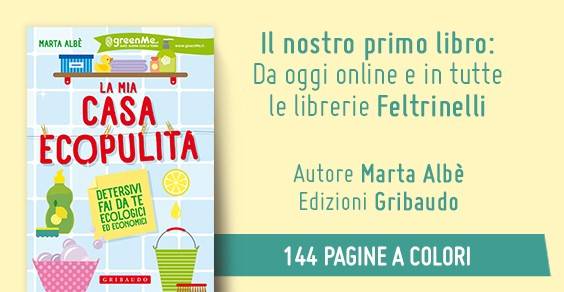
- on the Feltrinelli website
- Su Amazon
Read also:
- Self-produced Marseille soap washing detergent
- Do-it-yourself detergents: how to self-make soap for the washing machine (liquid and powder)
- Do-it-yourself detergents: the guide
- Creative recycling: 8 ideas to reuse detergent bottles
- Laundry: 6 natural alternatives to chemical softeners
–Do-it-yourself vegan soap
- How to make homemade soap with just 3 ingredients
- 50 great alternative uses of baking soda




